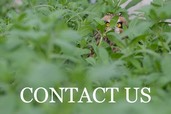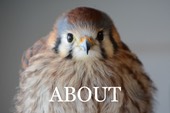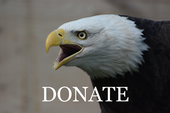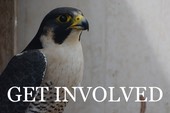Baby Birds Come In All Shapes And Sizes...
A Canada Goose gosling couldn't keep up with his family. He will be fostered into a new family once his gimpy leg gets stronger.
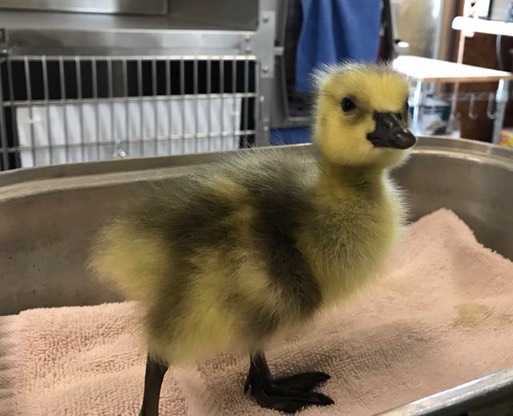
These nestling American Crows became homeless when their nest tree was cut down. Their beaks are color-coded to tell them apart.
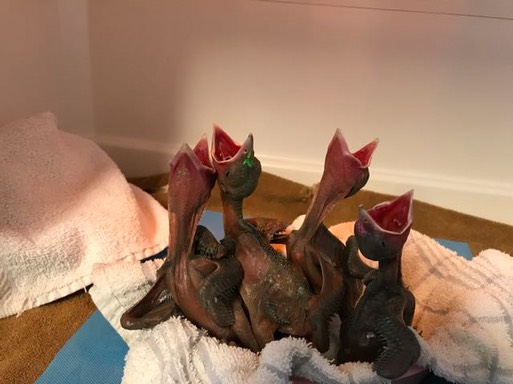
Baby Birds On The Ground Often Don’t Need To Be Rescued
A young Great Horned Owl ended up on the ground. Volunteer Pam checked out the youngster and then returned him to the nest tree as the rest of the family watched.
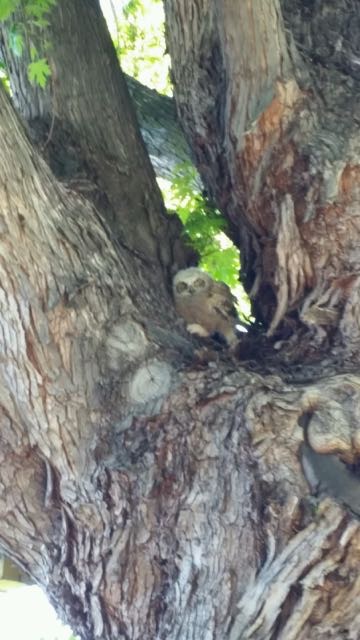
Next, Pam checked on a fledgling Western Screech Owl that a home owner was concerned about after seeing it on the ground. Fortunately the little owl was able to fly well enough to get up into a tree. Then the home owner noticed it was perched next to another fuzzy owl. Taking these babies would be kidnapping, not rescuing!
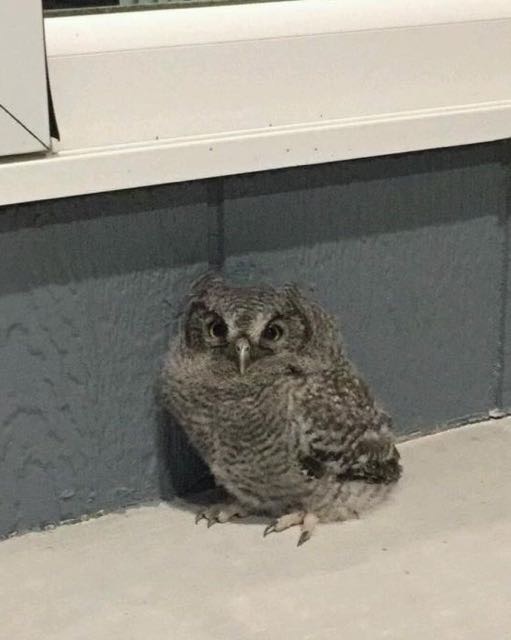
Barn Owls 17-153 and 17-155
Sometimes its hard to know whether or not a young bird needs to be rescued. Two sibling Barn Owls were admitted one day apart. The first youngster was not ready to fledge, but old enough to venture out of the nest. The nest cavity was located somewhere high up in a very large, old tree.
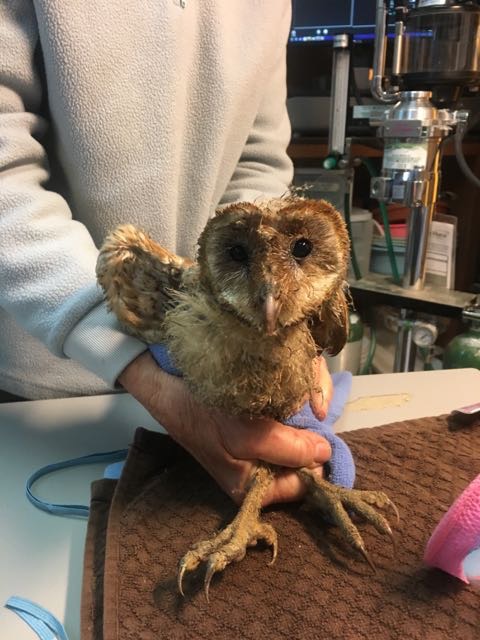
An exam found no injuries. The owlet’s feathers were coated with a horrible smelling material and inhabited by a few feather lice. (Note: barn owl nests can be pretty disgusting places, a combination of pellets, poop and decaying surplus prey items brought by very dedicated parents.) The challenge was to transport him 90 miles back to the nest tree in Prosser, WA.
Then the sibling arrived. It had a dislocated shoulder and a fractured radius, smelled even worse and was covered with lice! After removing the lice, a good bath and immobilizing the broken wing, the two siblings were reunited. Notice that the arrows pointing at the shoulders in the radiograph below are not even, indicating there is a problem in the shoulders. Hopefully the young Barn Owl will be as resilient as the injured Great Horned Owls we have seen this spring, and heal up with no complications.
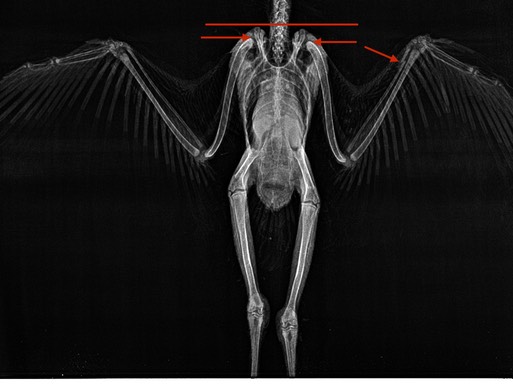
Hypervitaminosis And Metabolic Bone Disease
Every year we see baby birds that people have found and kept for a period of time before calling to see what the best course of action is. Because baby birds grow so rapidly, just two or three days on an inappropriate diet can cause irreversible damage to their bodies.
This past week we admitted a Western Screech Owl that people had found and kept for an entire year. They fed it liver and pinkie mice. Liver is very high in vitamin A. The owl had multiple opaque areas in both lenses of his eyes, likely caused by too much vitamin A in his diet.
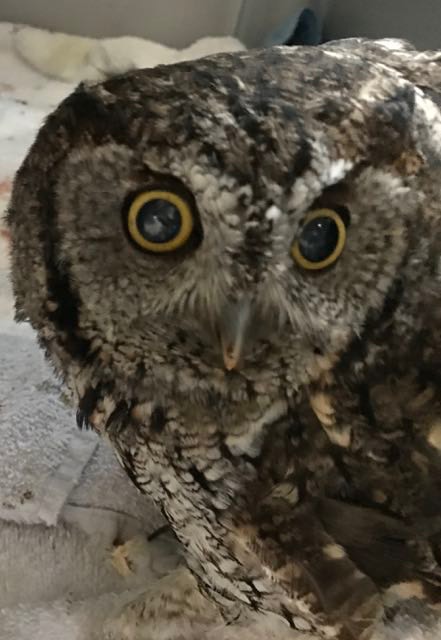
The owl cannot fly. A radiograph showed abnormalities throughout his skeleton, the result of a calcium deficient diet consisting of pinkie mice and liver.
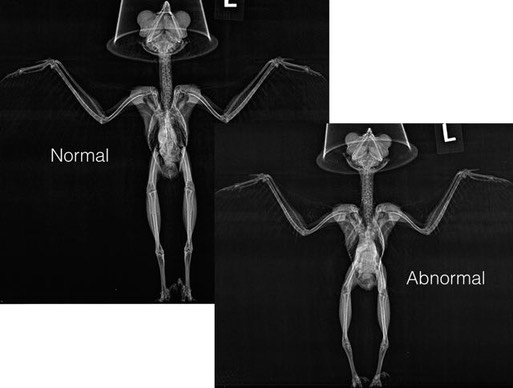
There is some discussion in the literature of the possibility of at least a partial reversal of the damage to the owl’s eyes with good nutrition. The damage to the skeleton is not reversible and will likely lead to severe arthritis within a few years.
It is critically important to call immediately if you find a baby bird. The people who had the owl did not intentionally harm him, but that is what happened due to the inappropriate diet they fed. It is also a violation of state and federal law to keep a native bird as a pet.
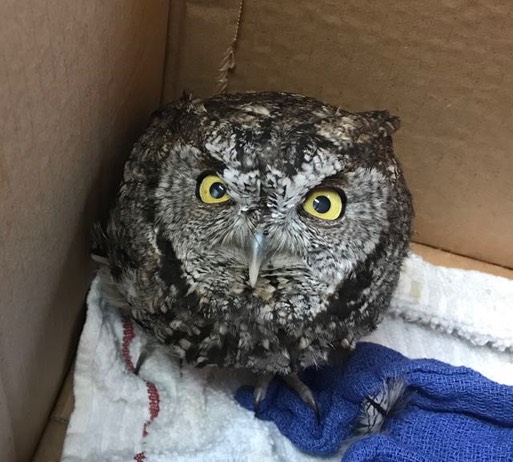
Education Team On The Road
Two weeks ago the Educaiton Team provided programs at Heppner Elementary School.
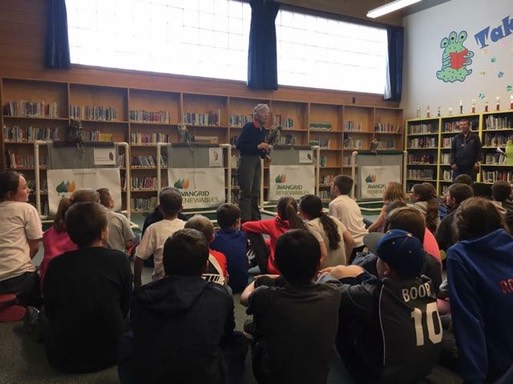
Last week the team participated in Pendleton Outdoor School and Future Steward’s Day with La Grande third graders. Next week will be another Pendleton Outdoor School and Outdoor School at Emigrant Springs State Park.
